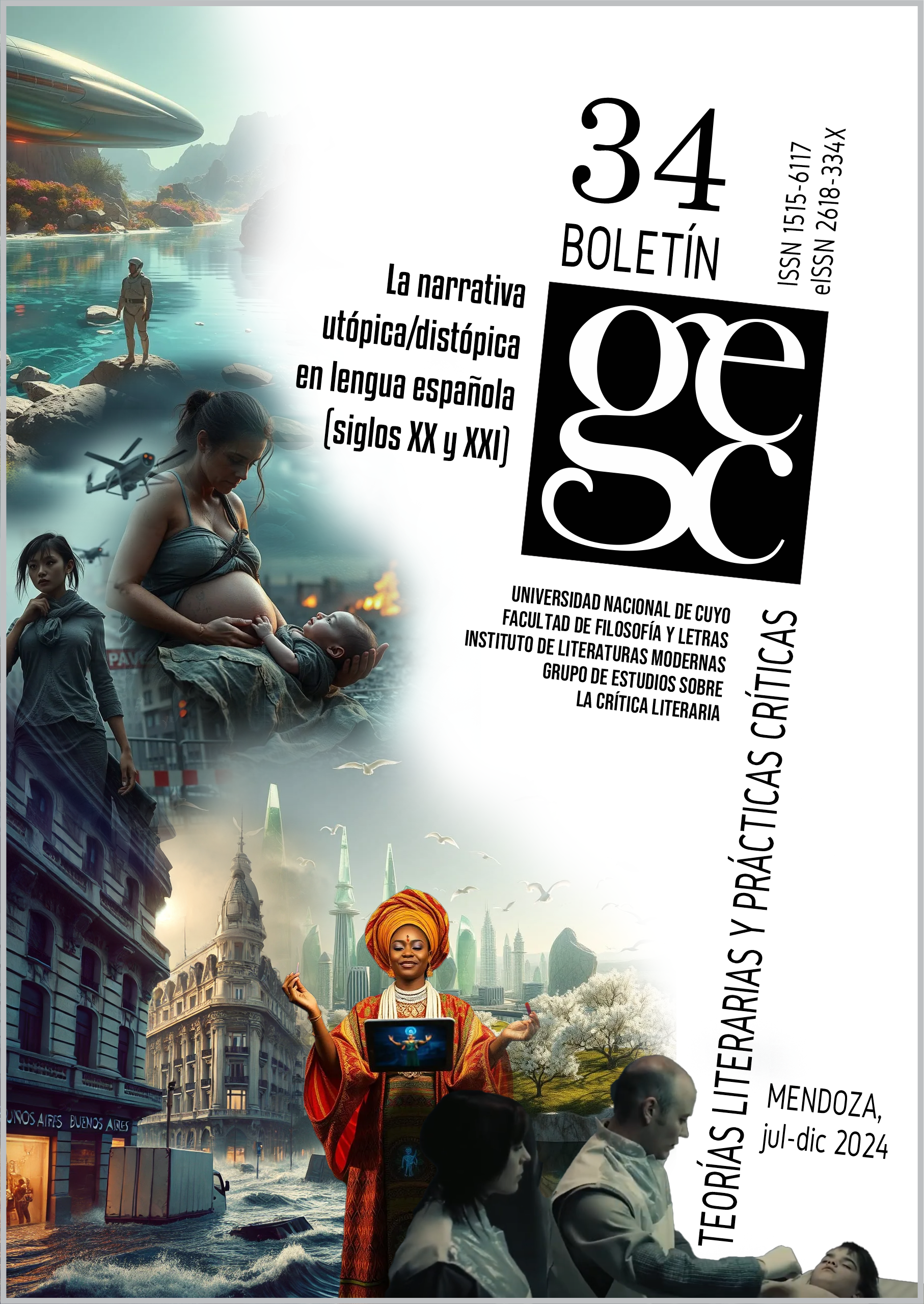The Transparent City of the Unnamed: Identity and Resistance in Ray Loriga’s Rendición (2017)
DOI:
https://doi.org/10.48162/rev.43.064Keywords:
narratives, utopia/dystopia, identity, intimacy, resistenceAbstract
In some utopian-dystopian narratives, it is common to find elements such as the absence of names, the presence of uniform buildings, and the opposition between the perfectly organized city and the peripheral area presented as a wild space, not adhered to this same type of order. Examples are Utopia (1516), by Thomas More, We (1920), by Yevgeny Zamyatin, Brave New World (1932), by Aldous Huxley. However, Rendition (2017), written by Ray Loriga, can be placed within this genealogy, although with its own characteristics. Here, the space of the comarca contrasts with that of the Transparent City, and the absence of names is not imposed by the perfect organization of this place, but arises from the protagonist, more linked to personal elements, being the protagonist’s children the only names mentioned. This article analyzes, on one hand, the contrast between spaces in which different inflections of power and intimacy underlie, and, on the other hand, the issue of names in two directions: the lack of names as a reflection of the loss of identity, and at the same time, the permanence of the names of the lost children, which provide direct access to a connection with the past.
References
Alonso, M. N., Blum, A., Cerda, K., Cid, J., Oelker, D., Sánchez, M., Triviños, G., y Villavicencio, M. (2005). Donde nadie ha estado todavía: Utopía, retórica, esperanza. Atenea (Concepción), (491), 29-56. https://dx.doi.org/10.4067/S0718-04622005000100004
Baczko, B. (1999). Los imaginarios sociales: Memorias y esperanzas colectivas. Nueva Visión.
Martorell Campos, F. (2012). Notas sobre dominación y temporalidad en el contexto postmoderno a propósito de la distopía. Astrolabio. Revista internacional de filosofía, (13), 274-286 https://raco.cat/index.php/Astrolabio/article/view/257062
Peris Blanes, J. (2019). Imaginación distópica y visibilidad urbana en Rendición y Todo era oscuro bajo el cielo iluminado. En E. Martínez (Comp.), Señales mutuas: Estudios transatlánticos de literatura española y mexicana hoy. Vervuert.
Lacan, J. (1984). Escritos I. Siglo XXI.
Loriga, R. (2017). Rendición. Alfaguara.
Preciado, P. B. (2008, 26 de Enero). Farmacopornografía. El país. https://elpais.com/diario/2008/01/27/domingo/1201409559_850215.html
Rancière, J. (2011). Política de la literatura. Libros del Zorzal.
Downloads
Published
How to Cite
Issue
Section
License
Copyright (c) 2024 Franco Pozzo, Rosario Ana Vizioli

This work is licensed under a Creative Commons Attribution-NonCommercial-NoDerivatives 4.0 International License.
Aquellos autores/as que tengan publicaciones en esta revista, aceptan los términos siguientes:
- Los autores/as conservarán sus derechos de autor y garantizarán a la revista el derecho de primera publicación de su obra, el cual estará simultáneamente sujeto a la Licencia de reconocimiento de Creative Commons que permite a terceros compartir la obra siempre que no se use para fines comerciales, siempre que se indique su autor y su primera publicación en esta revista, y siempre que se mencionen la existencia y las especificaciones de esta licencia de uso.
- Los autores/as podrán adoptar otros acuerdos de licencia no exclusiva de distribución de la versión de la obra publicada (p. ej.: depositarla en un archivo telemático institucional o publicarla en un volumen monográfico) siempre que se indique la publicación inicial en esta revista y se cumplan las otras condiciones mencionadas arriba.
- Se permite y recomienda a los autores/as difundir su obra a través de Internet (p. ej.: en archivos telemáticos institucionales o en su página web) antes y durante el proceso de envío, lo cual puede producir intercambios interesantes y aumentar las citas de la obra publicada. (Véase El efecto del acceso abierto).














